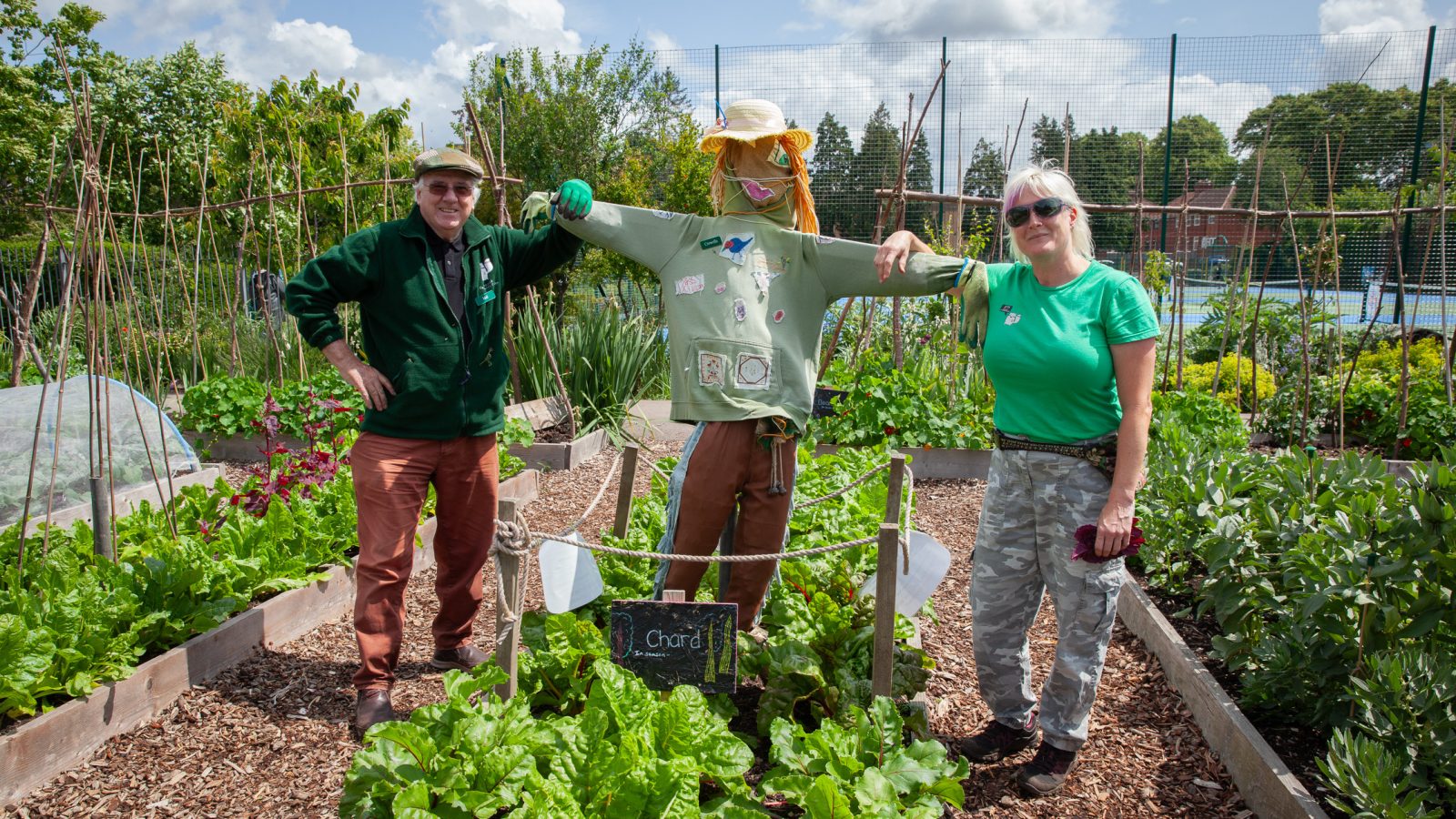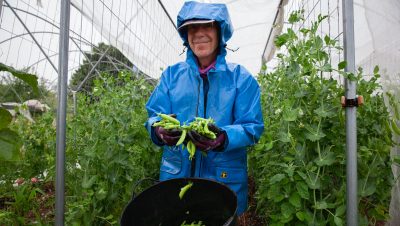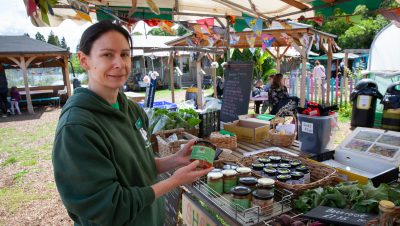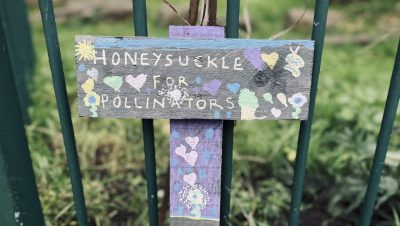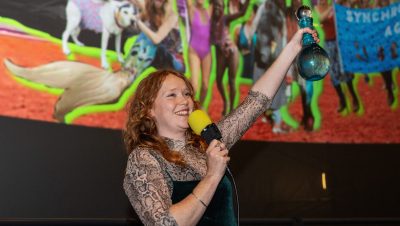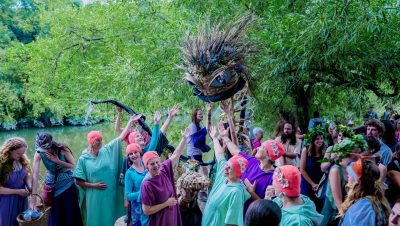In photos / food growing
Meet the growers doing things differently
Regenerative culture is taking root in Bristol, starting with the projects growing food just a stone’s throw away from the households consuming it, and expanding to encompass people, communities and lifestyles.
Photographer Mark Simmons has captured some of the people working the land of these projects at this most abundant time of the year.
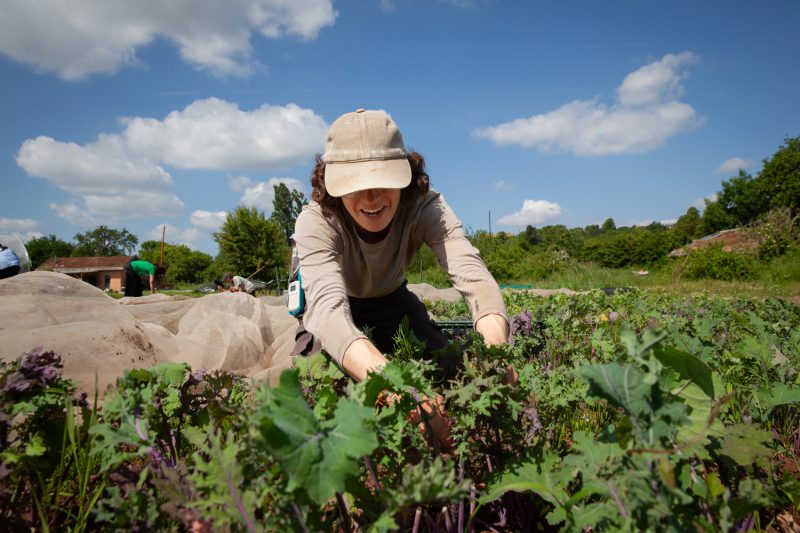
Sims Hill shared harvest, based in Frenchay, supplies seasonal veg shares from its regenerative market garden to 140 houses in the city. It is looking for new members in order to remain financially viable: simshill.co.uk/join
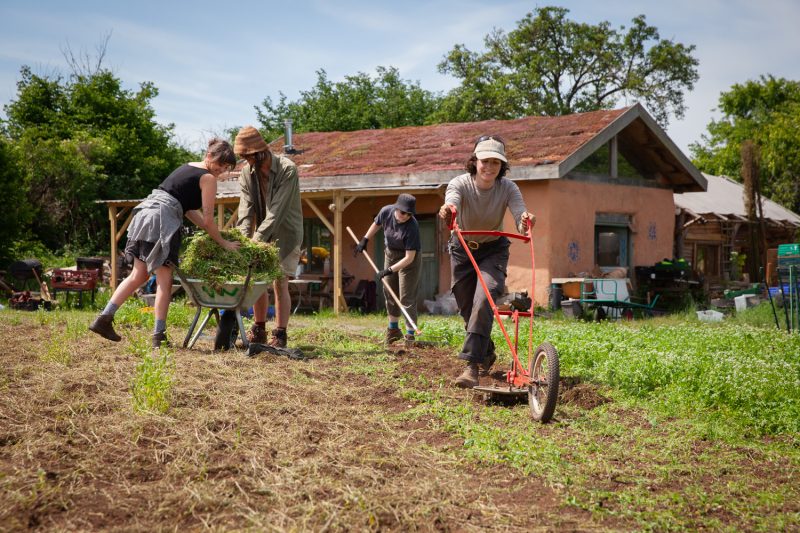
The produce is grown using natural farming and permaculture methods, with an emphasis on nurturing the soil to increase fertility which not only supports the land’s ecology but also produces more nutritious vegetables
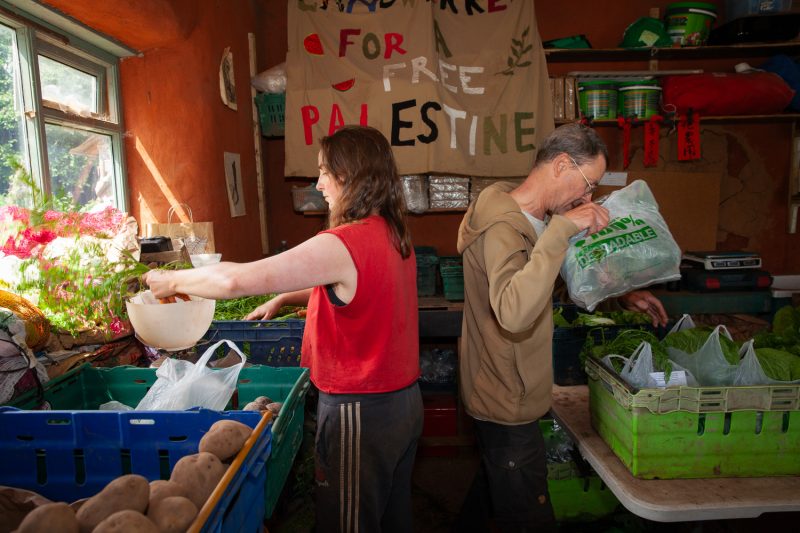
The project is cooperative and member-led, operating as a partnership between growers and consumers and running regular workshare days as well as social impact initiatives such as their soil connections programme that invites those affected by the asylum system on to the land for communal growing and food sharing
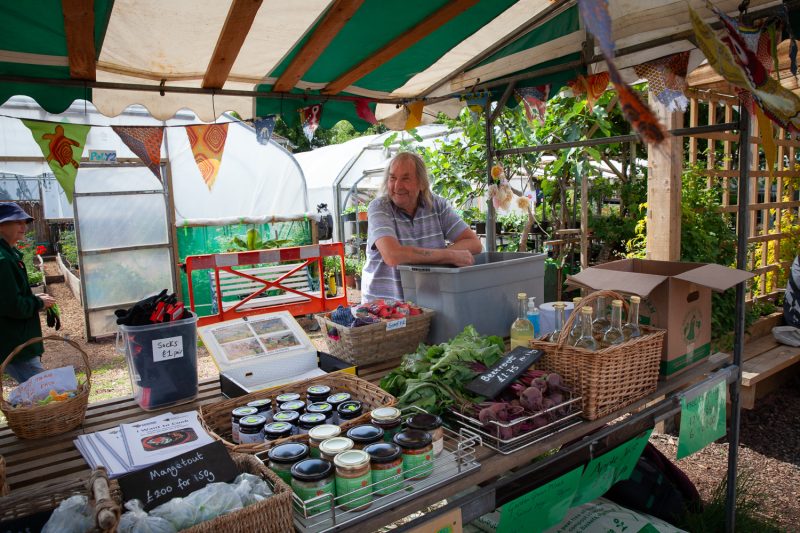
Redcatch Community Garden is based in the heart of Knowle and encompasses a whole regenerative culture approach within its walls, with food and flower growing, cooking and communal eating, stalls, art therapy, wellbeing sessions and live music events
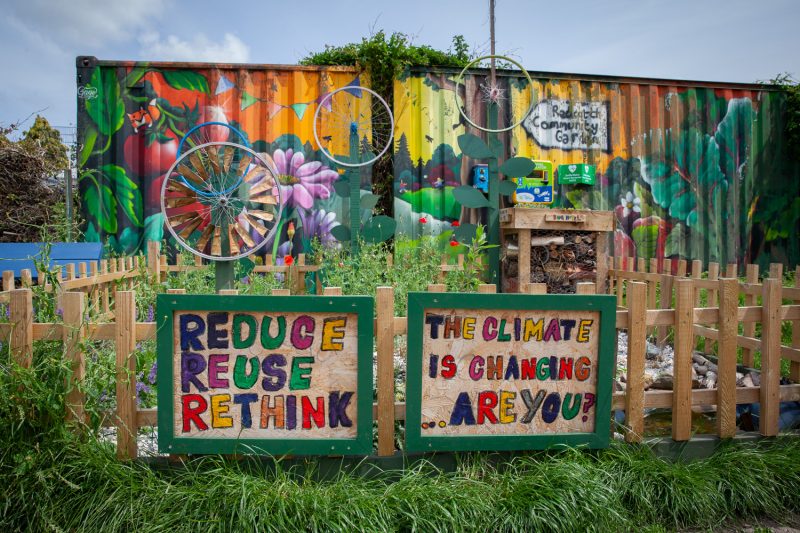
The project was set up by Kate Swain and Mike Cardwell who turned a disused bowling green into the thriving nature and community hub it has become today – “Every neighbourhood could have one of these for the health and cohesion of the community” says Simmons, considering the number of similar disused spaces across the city
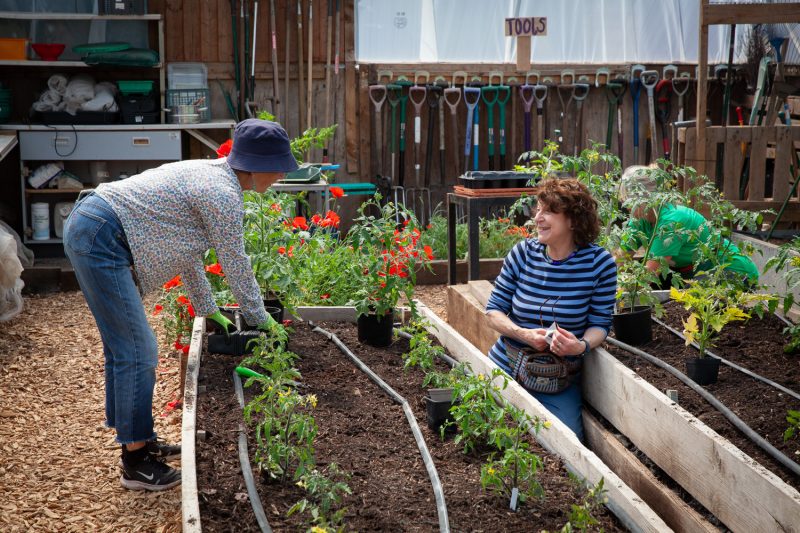
Swain says the project makes use of ‘social capital’ which, Simmons says, really means “a rather beautiful dynamic… People coming together and realizing a collective dream, where differences are held and healed in the bigger space that the vision sustains”
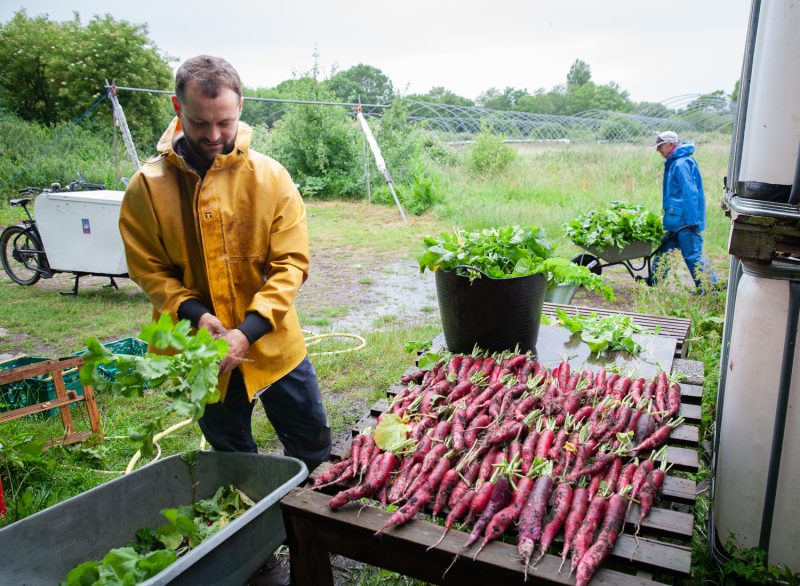
Lush Greens is a small not-for-profit vegetable farm in Hengrove. It tackles food insecurity by supplying local food poverty charities and community groups – including Redcatch Community Garden – and running a pay-what-you-can veg box scheme. 80 per cent of produce goes directly to the people of south Bristol
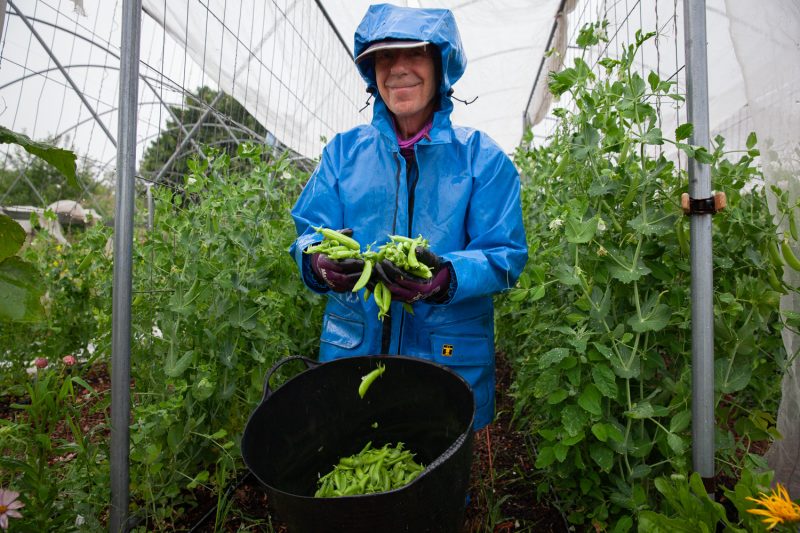
The garden operates on a ‘healthy soil, healthy plants, healthy people’ basis, using organic and No Dig methods that encourage ecological diversity, with over 40 different crop varieties grown
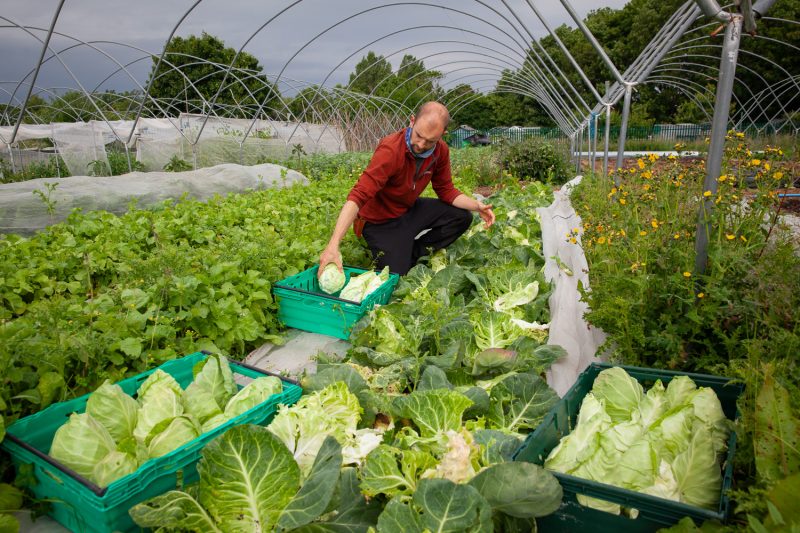
The project has transformed an acre of derelict, vandalized council land into a thriving green spot, providing benefits for those that spend time there including alleviating social isolation and climate anxiety. “Lush Greens feeds me emotionally as well as physically – reconnecting to the land, seasons and doing something that makes a difference,” says director Olly
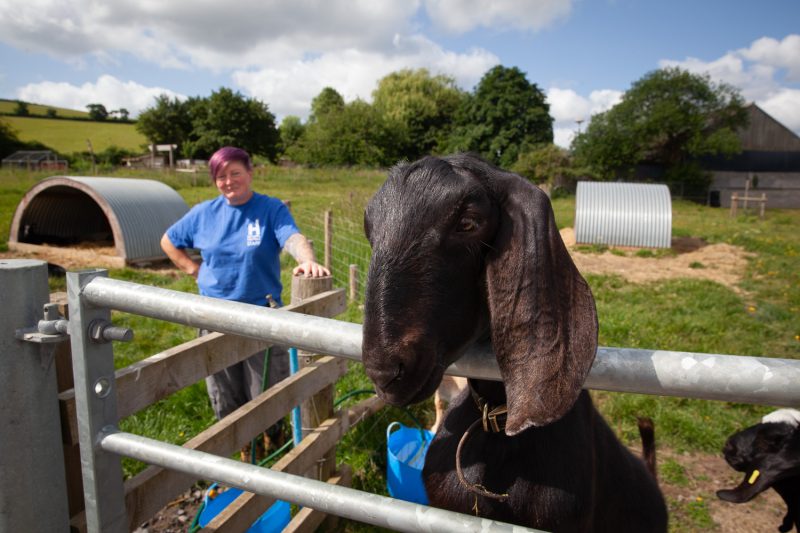
Hartcliffe City Farm is working to provide fresh, healthy food alternatives in the ‘food desert’ – an urban area where it is difficult to buy affordable or good quality fresh food – that has high levels of deprivation. It offers gardening, cooking, wellbeing activities and access to nature, as well as onsite composting and a flower farm
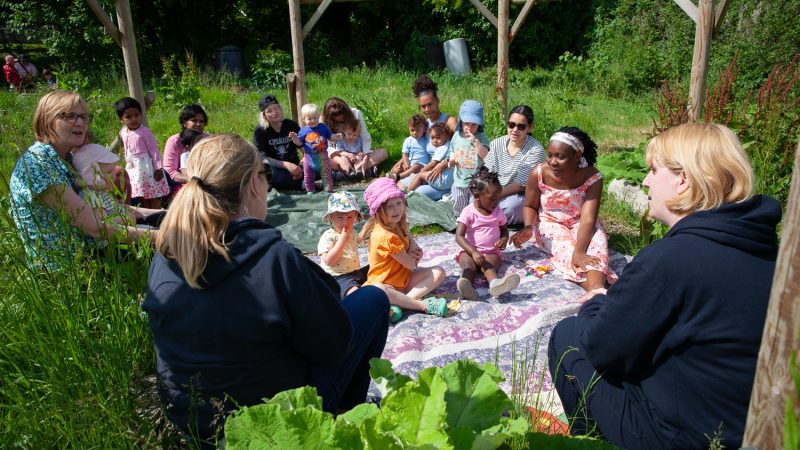
The farm holds regular sessions for children, both outdoors and in their dedicated Play Barn
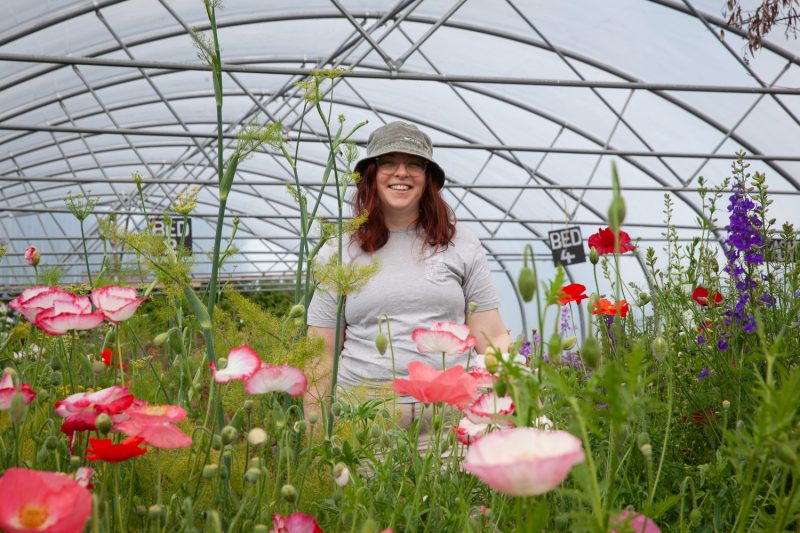
The Heart of BS13 flower farm uses sustainable methods to produce seasonal flowers that are chemical and carbon free. It provides training and educational opportunities to people interested in organic growing
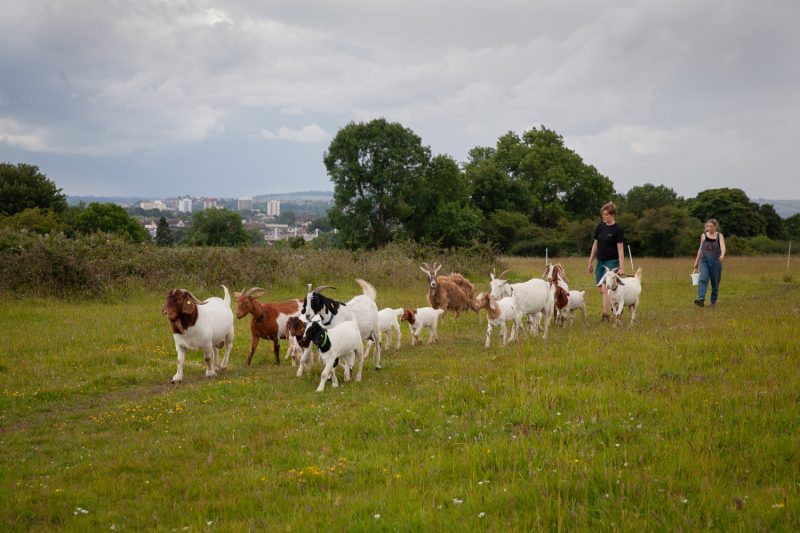
Street Goat urban farming group is connecting communities with sustainable food production and regenerative land management. It grazes goats at Purdown and has a dairy site at Begbrook
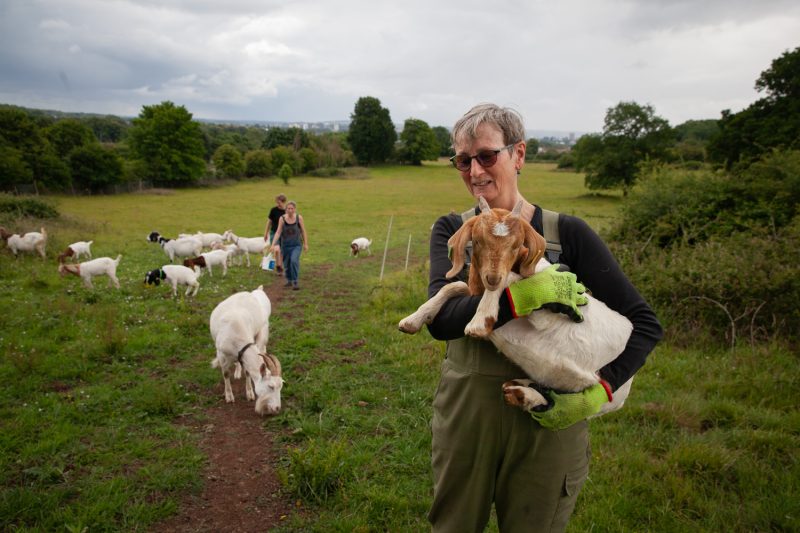
Volunteers help care for the goats, including herding and milking, for a share of milk and meat, becoming part-time urban farmers and helping reduce the environmental impact of their food. The goats are also drafted into help naturally clear disused and overgrown land that can then be used for growing and other community projects
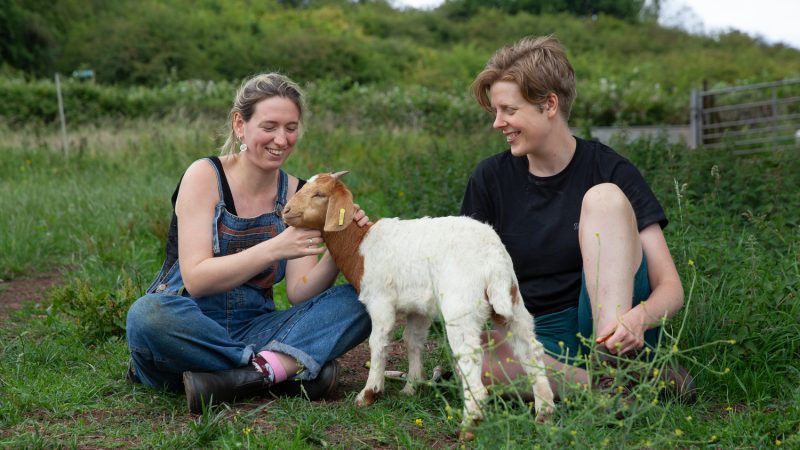
As the animals are well looked after and every part of the goat is put to good use, for milk, fibre and meat, “Street Goat made me see meat in a different way, as a part of the natural working and cycle of husbandry,” said volunteer Alina. “Regeneration is the answer to all the problems that we face”
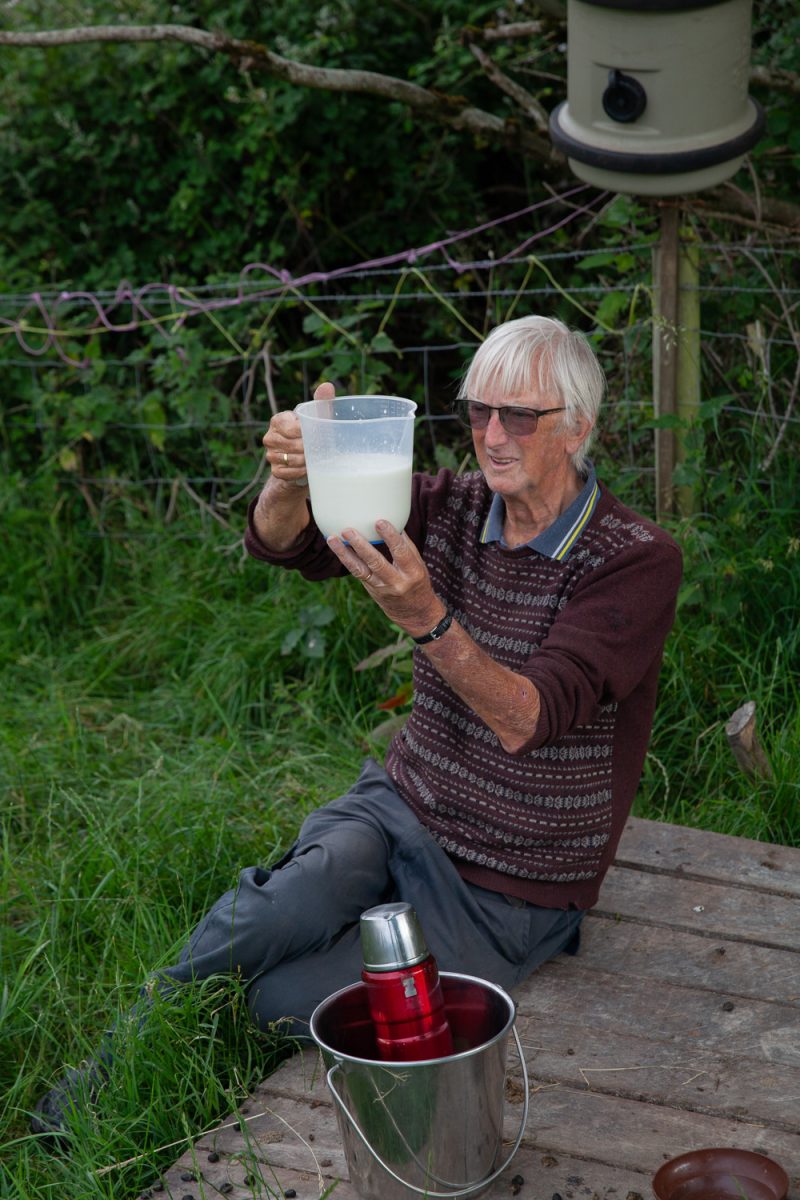
It takes very few goats to fulfil the dairy needs of a reasonable number of people say Street Goat, imagining a more regenerative culture where every street has its own communally-owned goat and maybe a pig to help recycle food waste. The evidence is that these local, self-initiated projects work for the communities they serve as well as the land, offering a more hopeful and sustainable future for us all.
All images: Mark Simmons
is needed now More than ever
Read next:
 Our newsletters emailed directly to you
Our newsletters emailed directly to you